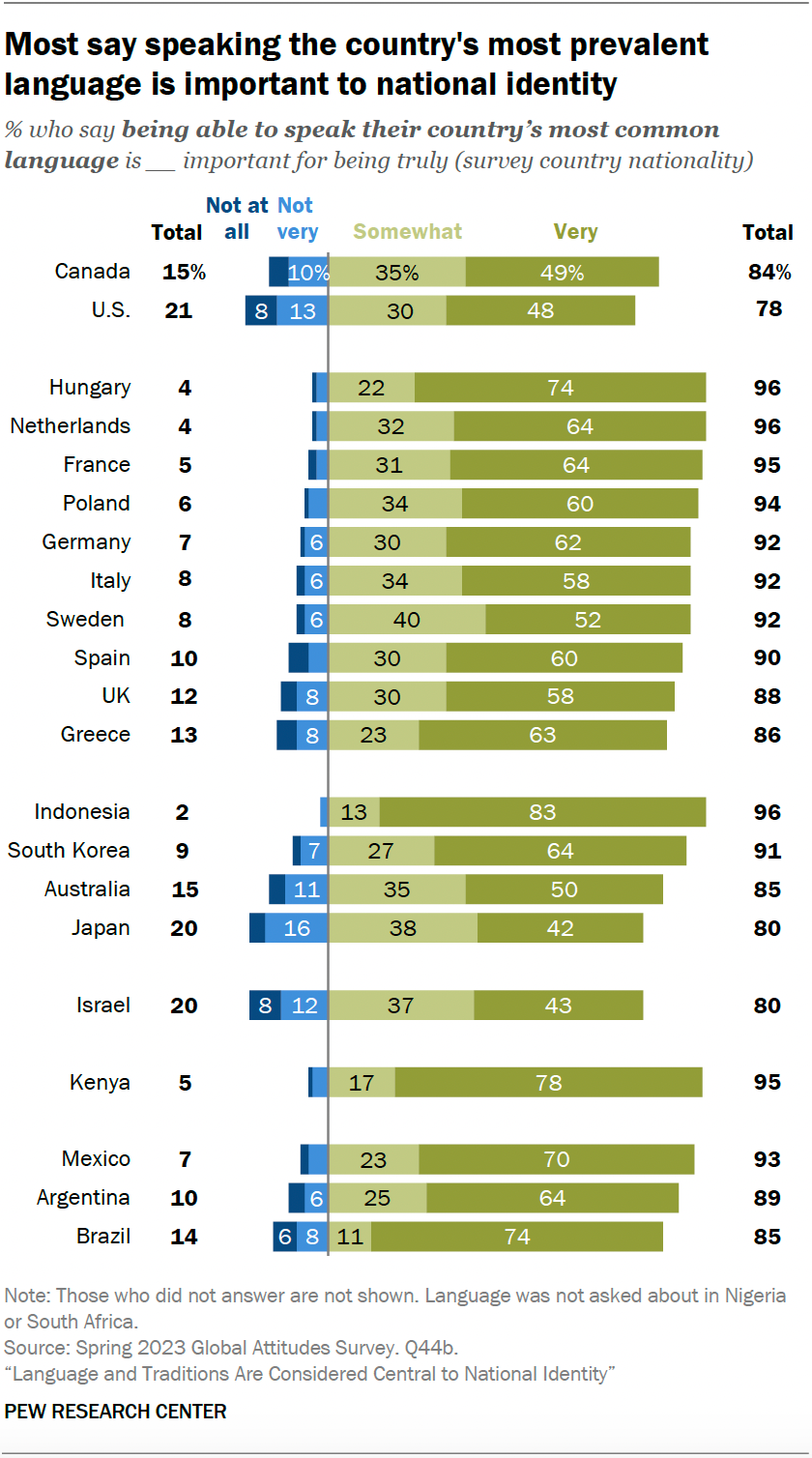為什麼語言是通往流動性的大門
從這個項目開始,我們的核心觀點一直是:語言能力是成功移居的關鍵紐帶。語言有其實用的一面,或者說語言作為工具——一定程度的流利度可以幫助你熬過簽證地獄的頭30天,也能幫助你的家人在10年後融入每週的社區聚會。
但在反移民情緒日益高漲的背景下(我們最近寫了很多這方面的內容),會說當地語言正在成為成功移居的基本門檻,而且原因有所不同。
這讓我們想起了皮尤研究中心去年的一項研究,題為「語言對國家認同重要性的看法」。世界各地的觀點似乎相當一致:如果你想成為我們中的一員,就得學會這門語言。

這些結果與教育程度、年齡無關,而且(除了美國)基本上也與政治立場無關。它們凸顯了一點:語言不僅僅是一個實用工具。它也是一種社會符號,表明你認同某種價值體系、某種看待世界的方式、某種共同的身份認同。當然,流利並不總是等於歸屬感。口音、名字和外貌會標記出差異,而且很多外派人士靠微笑和積極的態度就能融入。但語言往往仍是加入新社區的第一座也是最明顯的橋樑。
隨著邊境收緊、歡迎的門檻越來越高,當地語言正在成為一項必不可少的資質。